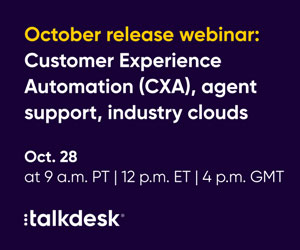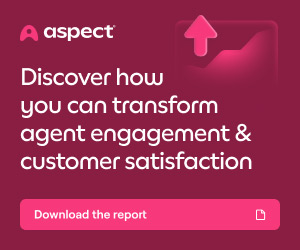Noble Systems discuss the meaning of Cloud IVR and how it improves customer service.
What Is Cloud IVR?
The term “Cloud IVR” refers to the availability of IVR functionality via a service platform. With a cloud-based IVR solution, companies can benefit from the use of modern, efficient cloud-based technologies.
These are typically offered on a consumption-based model.
Interactive voice response (IVR) is an automated system generally used by contact centres that answers incoming calls and then interacts with callers via recorded prompting to gather information.
Callers input their response using their telephone keypad (touch-tone) or voice commands. The IVR system then uses routing rules to send the call to either an agent or a self-service application.
Is Cloud IVR Right for Your Business?
The traditional IVR model has been for contact centres to purchase an on-premise system. These systems are either tied into their PBX or ACD system or purchased as stand-alone IVR technology that can integrate with third-party products.
The upfront costs and ongoing support and maintenance of premise systems can be high, and access to advanced features may require additional software integration or custom development.
With the growth of cloud virtualization and Session Initiation Protocol (SIP) call delivery over virtual interconnects, the cloud-based IVR solution has become a much more viable option.
With Cloud IVR, contact centres have a lower cost of entry and can eliminate daily maintenance and upgrade requirements and valuable data centre real estate.
The responsibility for maintenance and management of telecommunications and servers falls on the vendor. The cloud-based IVR offers an “always on” service environment, with 24x7x365 support and monitoring.
A cloud IVR can also give companies the flexibility to easily adjust call volumes, to ramp up and down capacity for seasonal calling, further maximizing the financial benefit.
Most cloud-based IVR platforms also provide the flexibility to add advanced options, including skills-based routing, intuitive tools for building menus and routing paths, virtual agents, self-service, payment processing, surveys, and speech analytics.
All of these tools can help increase first call resolution and improve the customer experience.
These capabilities make a cloud IVR solution very appealing to a variety of organizations, and especially for smaller businesses with limited budgets but big expectations.
Pricing for cloud services depends on the level of service you want, the number of minutes or lines needed, and how many features you receive.
IVR Use in the Call Centre
An IVR is often the first interaction between a caller and an organization’s call centre; therefore it can influence the caller’s perception through its tone of voice and ease of use.
IVR systems can give businesses the opportunity to enhance the customer journey as well as optimize overall agent interactions. A well-tuned IVR, whether on-premise or cloud based, can provide a number of benefits for the call centre.
While often thought of as an inbound-centric tool, IVR can also be used quite effectively for outbound contacts, to improve efficiencies and handle proactive communications to customers.
Here are some other popular uses of a modern IVR platform for contact centres:
- Customer service: IVR systems can reduce wait times for customers and get them to the right person to answer their questions. They can also help alleviate the need to hire employees to field questions and route calls.
- Payment processing and collections: IVR is often used for collections and for automating payment transactions. In addition to outbound “virtual agent” collections calls, IVR allows customers to obtain their account information and make payments through self-service features.
- Marketing and communication: Outbound IVR can be used for marketing, such as telling customers about new offers, as well as for routine communications, such as confirming appointments, notifying them of status changes, or sending service notifications.
Author: Robyn Coppell
Published On: 29th Jun 2020 - Last modified: 30th Jun 2020
Read more about - Guest Blogs, Noble Systems





































